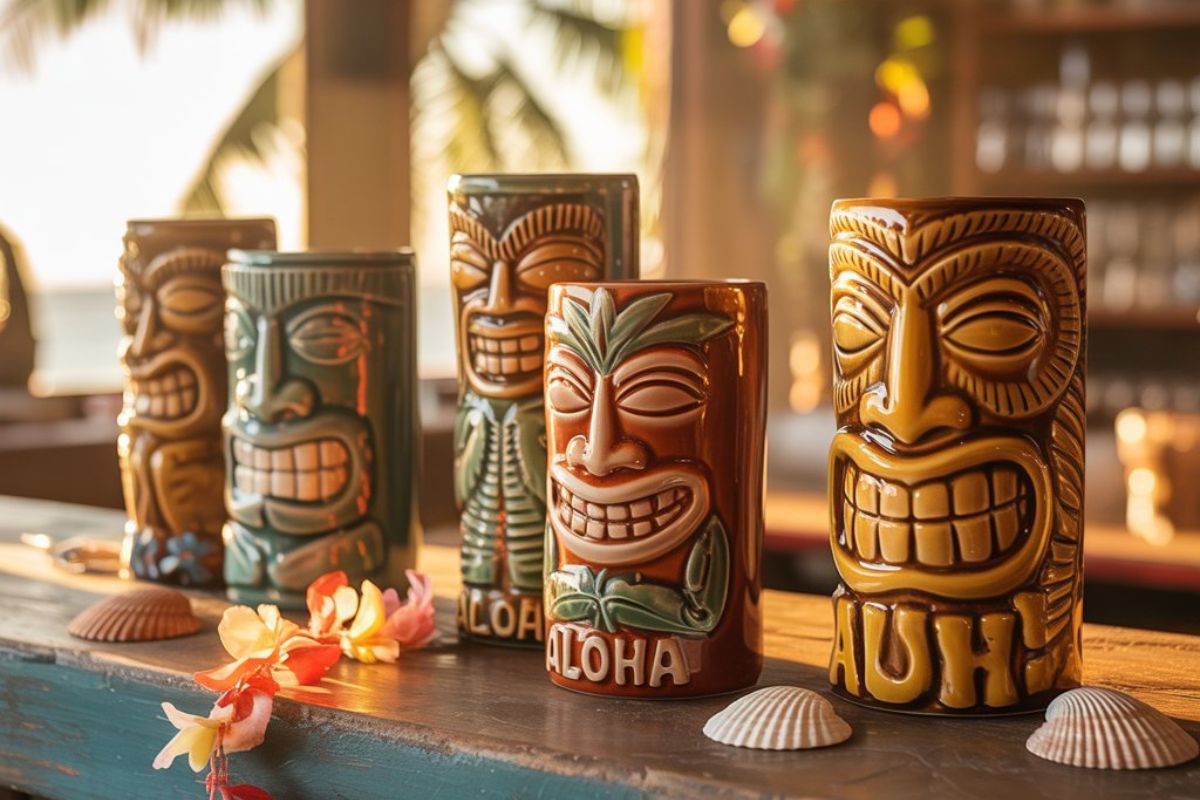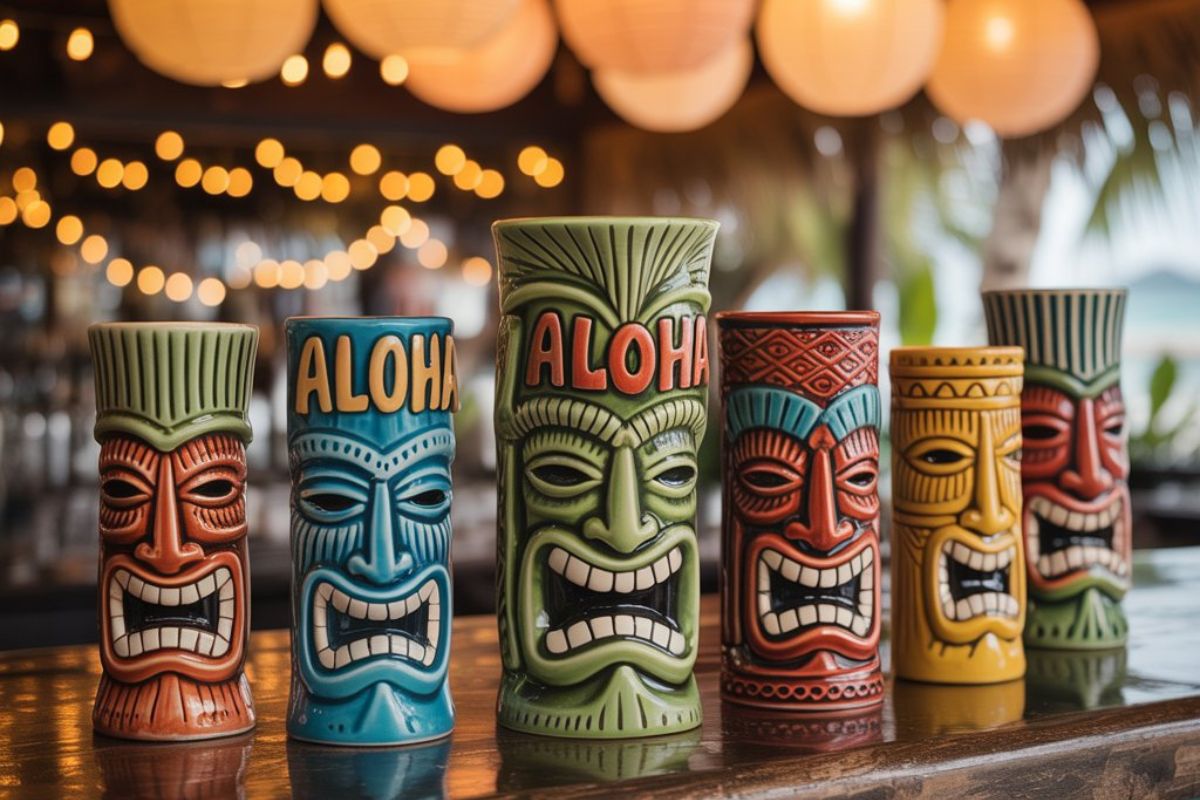Tiki mugs have become iconic symbols of tropical escapism, Polynesian-inspired aesthetics, and mid-century American pop culture. With their bold designs, vibrant colors, and playful themes, they are highly sought-after collectibles. However, as their popularity grows, so does the conversation about cultural appreciation versus appropriation.
For collectors and enthusiasts, it’s important to understand the origins of tiki culture, the significance of its imagery, and how to engage with it respectfully. In this article, we’ll explore:
The Origins of Tiki Mugs: A Blend of Fantasy and Influence

Tiki mugs emerged in the mid-20th century alongside the rise of tiki bars in the U.S., popularized by figures like Don the Beachcomber and Trader Vic.
These establishments were inspired by a romanticized version of Polynesia—a fantasy world of bamboo huts, tropical cocktails, and carved wooden tikis.
While tiki culture borrows heavily from Polynesian, Hawaiian, and Māori art, it’s important to note that it is largely an American invention. Traditional tiki carvings hold deep spiritual and cultural significance in Pacific Island cultures, whereas tiki mugs were designed as novelty drinkware for entertainment.
Respectful Collecting vs. Cultural Appropriation

Cultural appropriation occurs when elements of a marginalized culture are taken out of context, commercialized, or misrepresented without understanding or respect. In the case of tiki mugs, some concerns include:
* Misuse of Sacred Symbols – Traditional tiki figures in Polynesian cultures often represent deities or ancestors. When these symbols are mass-produced as kitsch barware, it can be seen as disrespectful.
* Stereotyping and Exoticism – Tiki culture sometimes reduces Pacific Islander traditions to a cartoonish aesthetic, ignoring their true meaning.
* Profit Without Representation – Many tiki mug designers and sellers have no connection to the cultures they’re borrowing from, while Indigenous artists rarely benefit from the trend.
Read More: Tropical Treasures: Must-Buy Items to Remember Your Hawaiian Vacation By
How to Collect Tiki Mugs Respectfully
If you love tiki mugs but want to avoid cultural harm, here are some ways to engage mindfully:
1. Educate Yourself – Learn about the real history of Polynesian cultures and the origins of tiki pop culture. Books like Tiki Modern by Sven Kirsten or Potions of the Caribbean by Jeff “Beachbum” Berry provide valuable context.
2. Support Indigenous Artists – Seek out mugs made by Polynesian or Pacific Islander creators who incorporate traditional designs with permission and respect.
3. Avoid Sacred Imagery – Some symbols (like Māori hei-tiki or Hawaiian kiʻi) have spiritual meanings. Opt for mugs with original, non-sacred designs instead.
4. Celebrate the Craft, Not Just the Kitsch – Appreciate tiki mugs as vintage Americana or mid-century art rather than authentic cultural artifacts.
5. Promote Ethical Sellers – Buy from small businesses or artists who acknowledge the cultural roots of tiki rather than mass-produced knockoffs.
Conclusion: Enjoy Tiki Culture with Awareness
Tiki mugs are fun, nostalgic, and visually striking—but they also exist within a complex cultural framework. As popular Hawaii souvenirs, they reflect both artistic flair and cultural heritage. By collecting them with awareness and respect, we can enjoy their whimsy while honoring the traditions they reference.
Do you collect tiki mugs? How do you approach the balance between appreciation and appropriation? Share your thoughts in the comments!